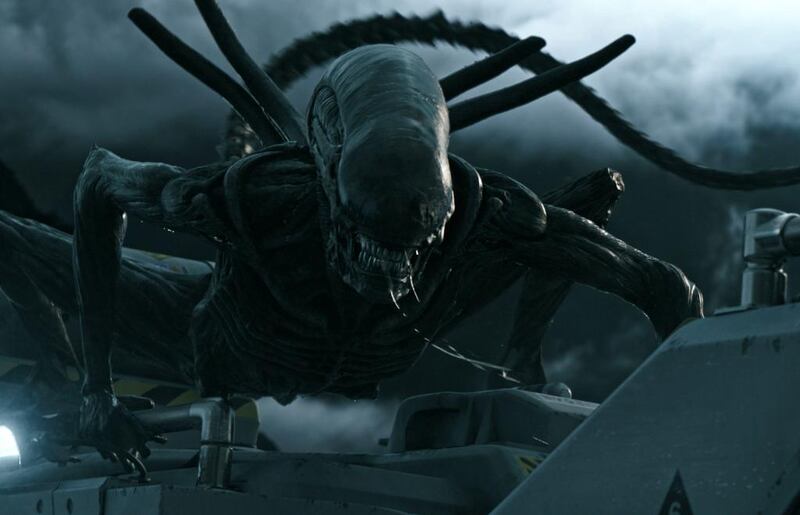Director: Ridley Scott
Stars: Michael Fassbender, Katherine Waterston, Danny McBride, Noomi Rapace
Four stars
In 1979, director Ridley Scott's Alien set the big-screen template for terror in space, while James Cameron's Aliens (1986) is one of those rare films that can reasonably claim to be a sequel that measures up to an acclaimed original.
Such successful follow-ups are few and far between, The Empire Strikes Back and Cameron's own Terminator 2: Judgment Day being two of the few genre examples that spring to mind. The franchise then entered a predictable decline, with David Fincher's troubled Alien 3 in 1992 and 1997's passable, just, Alien: Resurrection, directed by Jean-Pierre Jeunet.
Then the disappointing, and entirely unnecessary, Alien vs Predator spin-off series dragged the franchise into the swamp in the 2000s.
It was with some excitement, then, that Scott returned to the helm for the 2012 prequel Prometheus. The film was good, but not great, and proved divisive with audiences.
Scott seemed determined to get back to the heart of what had made Alien a success more than 30 years earlier, but in the process seemed so determined to create a mythology, previously only hinted at, that many of the elements that had made the first two films so enjoyable were lost.
Instead, he sought to erase the memory of the lesser sequels by introducing a pseudo-religious tone more concerned with cod philosophy and re-canonising his own creation than, well, terror in space and Xenomorph killing machines.
It is with some joy then, that we discover that with the follow-up, set between the events of Prometheus and those of the original Alien, Scott has very much remembered what fans love about the series and, it seems, listened to some of the gripes about the previous film.
There’s still a touch of the quasi-mystical thrown in – this is Ridley Scott after all – but for the most part, fans can rest easy that all the elements that made the first two films so enjoyable are very much back in place.
In Daniels, Katherine Waterston delivers a strong, female lead in the finest tradition of Sigourney Weaver’s Ripley.
Michael Fassbender's double role as synthetic humans Walter and (returning from Prometheus) David asks the questions we are all asking today about the potential benefits, or otherwise, of artificial intelligence that Scott first explored in the 1979 original (and expanded on in 1982's Blade Runner).
As for the action, without giving too much away, the creatures and "events" so beloved by fans that were conspicuously absent from Prometheus are very much back in force.
Fassbender told The National, in an interview published yesterday, that Covenant would be "scarier" than Prometheus, but not too "relentless". I'm inclined to disagree with him on that.
Once the alien threat emerges in this latest chapter, there is little time to pause for breath and the scares are plentiful as our heroes face a seemingly indestructible foe in the isolation of space.
The film does not really bring anything new to the franchise or genre, but how could it? Everything in Alien was new and surprising – 38 years later, we largely know what to expect.
Its success lies in that fact that Scott has remembered what made the franchise work so well in the early days – and he milks it to the max.
It might also be a sign of a director very much back at the top of his game – which bodes well for his eagerly-awaited return to the sci-fi world of Blade Runner after a 35-year break, with the sequel Blade Runner 2049 due out in October.
cnewbould@thenational.ae










